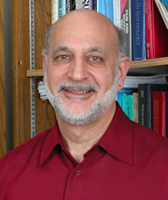
In his research in health psychology, Tom Merluzzi has focused on how individuals cope with chronic and terminal illness. Hes learned to understand that a physically frail person may be more psychologically strong than expected.
I am very respectful of older people who are saying I can handle things,says Merluzzi, a professor of psychology and psycho-oncologist.
Merluzzis research has shown that the elderly are more mentally prepared for illness than their children might expect, or than their children would be, were they to fall ill.
As people get older, they are more psychologically able to cope with illness,he says.They adjust better to cancer than younger people. Its on time in the sense that older people might be more apt to expect illness to affect them at their age. And, theyve had a lifetime of coping to bring to bear on it.
For elderly people who are chronically ill, the parent-child relationship can be complicated by a mismatch of support.In cancer research, if someone does not need a lot of instrumental support, and its provided, the person with cancer may not do as well. You may put them in sick role and they start thinking of themselves as less capable.
There is a delicate balance between doing too much and not enough. So the key is listening, observing, asking questions. The need for clear communication between the adult child and the parent cannot be stressed enough. If we are good parents we do this with our childrenits just that we are not used to doing this with our parents.
Sometimes, an adult child willing to manage medicines, checkbooks and transportation might be wise to just sit and talk with a parent, or ensure that the parent has peers to talk with. Many times, the chronically ill elderly are more comfortable talking about their illnesses than their children can tolerate, so same-age friendships can be important for support.
TopicID: 10705